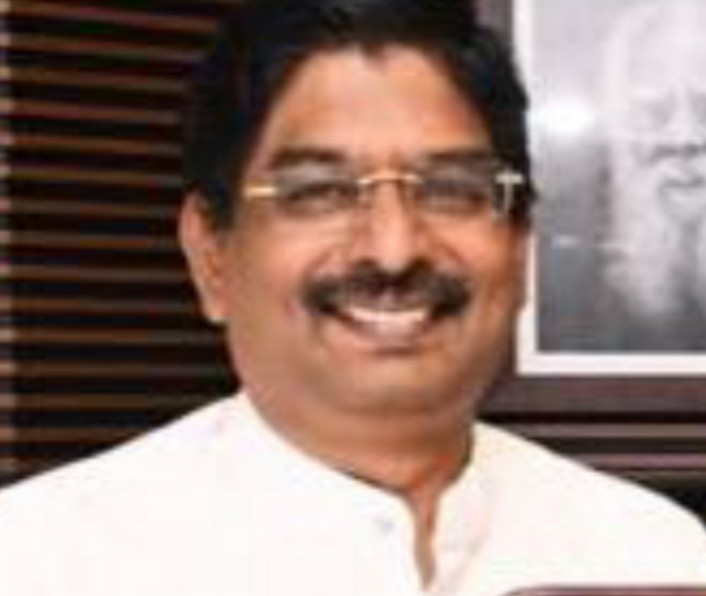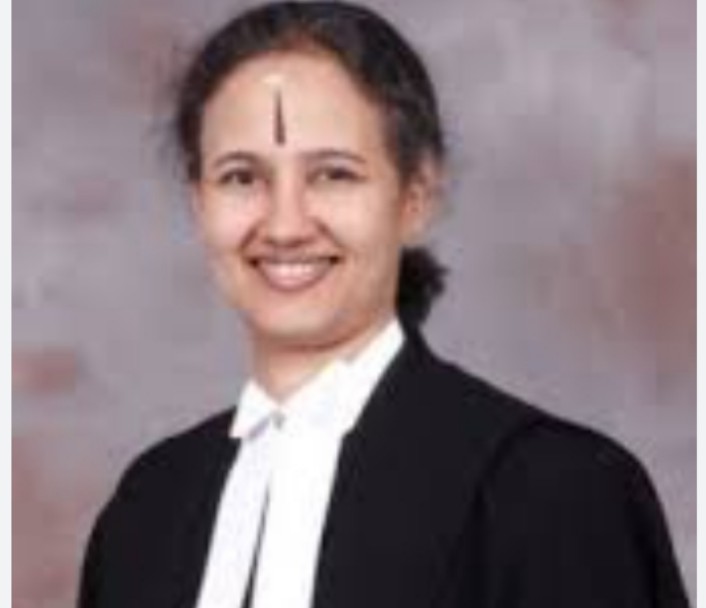Arguments of Senior Advicate P. Wilson for Mr Udayanidhi Stalin in Sanathana case 1. Senior Counsel P. Wilson made available to the court the Invitation received by Udhayanidhi Stalin to attend the Sanathana Olippu Manadu to show that it was a private event. He said the programme started at 8 AM and ended at 8 pm and there were several speakers
Arguments of Senior Advicate P. Wilson for Mr Udayanidhi Stalin in Sanathana case
1. Senior Counsel P. Wilson made available to the court the Invitation received by Udhayanidhi Stalin to attend the Sanathana Olippu Manadu to show that it was a private event. He said the programme started at 8 AM and ended at 8 pm and there were several speakers 
 . The programme was organised by communist party of India and many participated. However petitioner has neither filed the full programme video or entire speech of Hon’ble Minister to know the real intention of the organisers and offending speech and cannot be gone with the title of programme alone.
. The programme was organised by communist party of India and many participated. However petitioner has neither filed the full programme video or entire speech of Hon’ble Minister to know the real intention of the organisers and offending speech and cannot be gone with the title of programme alone.
2. He went on to rely on Public Interest Foundation and Ors. Vs. Union of Inida 2019 3SCC 224 to recall to the court that the court cannot add disqualifications beyond the scope of what has been made by the constitution. In the course of his arguments the senior counsel relied on Section 7 & 8 of the Representation of the People Act and said representation of people’s act disqualification cannot be enlarged to Sanathana speech..
3. The senior counsel placed his submissions in reply to the reply to the counter affidavit filed by the petitioner. The senior counsel succinctly established that the petitioner had destroyed their own case by citing various social reforms that have taken place with regard to the Hindu religion. The senior Counsel further submitted that the petitioners cannot claim that the Hon’ble Mjnisterspoke of “eradicating Hinduism.” The senior counsel asked the petitioner where he had said so. The senior counsel established that a talk on “eradicating” Sanathana cannot be equated to “Eradicating Hinduisim” which the petitioner is now pleading a false case and making a false narrative which they are expert in it.
4. The Senior Counsel next presented to the judge a copy of the book titled The Law Code of Manu, in order to substantiate his arguments that Manu Smriti inherently differentiated on the basis of caste. The Senior counsel relied on the book titled ‘Sanathana Dharma’ submitted by the petitioner to reiterate the point that the Hindu Society is governed by the Manu Smriti.
5. The Senior Counsel relied on the recent Supriyo @ Supriya Chakraborty & Anr. V. Union of India, 2023 INSC 920 to establish that the court should not be guided by social morality but rather by Constitutional morality. He established that the court should not be swayed by popular public morality or societal morality. He further stated that the petitioner’s homogenous view on Hinduism cannot prevail and cannot be accepted by this Court. The constitutional idealism and morality is supreme and any majoritarian view on societal morality should yield to constitutional morality which is supreme and binds this. Nation.
6. The Senior Counsel relied on Dr. Ranjeet SuryakantMohite Vs. Union of India PIL No. 139 of 2010 to show that Art 25 grants the citizen the freedom to practice atheism as well. Aethism can also be propagated which means why a particular religious practise need not be followed can also be propagated. The constitutional right guaranteed under Art 25 cannot be narrowly read to propagate religion alone where as it also provides for the social welfare and reforms. The Hon’ble Minister speech is a reformist speech and is traceable under Art 19(1)(a) whichh is supreme and basic human right. He submitted rights under Art 25 subserves the right under Art 19(1)(a) and this right can only be regulated under 8 instances referred under Art 19(2). The petitioner cannot read Sanathana in to it and seek for banning of speech or legally threaten with quo warranto petitions.
7. The Senior Counsel Relied on Indibilty creative Private Ltd. Vs. Government of West Bengal and Ors (2020) 12 SCC 436, and argued that the right to freedom of expression requires extending protections to speech we may despise, as the principle is at the heart of democracy, a basic human right, and its protection is a mark of a civilized and tolerant society.he also read the paragraphs wherein the PerumalMurugan case was also cited to show that freedom of speech and expression is a basic human right and helps in building
8. He relied on S. Khushboo vs Kaniammal and anr. 2010 5 SCC 600 to state that that the content of morality must be based on the precepts of justice liberty, equality and fraternity. He stated that it is no longer res integra that the duty of the Constitution court is to uphold the rights enshrined in the Constitution and to not be swayed by majoritarian tendencies or popular perceptions. The right to freedom of conscience is also subject to other provisions of part 3 and any measure in the interest of public order or morality, it is thus open to all to exhibit and propagate their beliefs and ideas through overt for the edification of others, regardless if the propagationis made by a person in his individual capacity or on behalf of any church or institution.
9. He relied on Kaushal Kishore vs. State of U.P MANU/SC/0004/2023 to establish that Article19 and 21 can be enforced against private individuals. However no writ can be filed against private individual to enforce Art 25 even if istatement is made in the capacity of minister. He said such speech if transform in to a government order then the same can be challenged. The Minister who spoke does not gives rise to a constitutional tort and cannot be challenged l..
10. He relied on PUCL vs UOI 2003 4 SCC 399 to show that the freedom of speech and expression can only be curtailed under Article 19(2) and no other provision as it is has been variously described as a basic human right.
11. He relied on Shreya Singhal Vs. Union of India 2105 SCC Online SC 248 to say that liberal views such as emancipation of women or the abolition of caste system may cause annoyance, inconvenience or may be grossly offensive to some, however, if such views are restricted merely because they are unpalatable to certain sections of people, it would result in a chilling effect on freedom of speech and expression.
12. He relied on judgment of justice Sanjay Kishan Kaul as he then was as CJ of madras High Court sitting in Division bench in Perumal Murugan case to state that that persons who take offence to the speech of the 1stRespondent shall restrain from engaging with it as what is acceptable to one may not be so to others.
13. He then relied on Ramji Lal Modi Vs. State of UP 1957 SCR 860 to state that Article 25 is subject to Article 19 of the Indian Constitution.
14. He then went on to rely on the Constitutional Assembly debates on Draft Article 19 which is the present Article 25 to state that Article can only be enforced against the state and not against private individuals.
15. He relied on Senthil Mallar Vs. The Commisionerof Police, W.P No. 25907 of 2023 to state that in a democratic set up it is always possible that there will be divergent views regarding a belief or an ideology. It is not possible to compel everybody to follow the same ideology and a person is always entitled to have his reservation and opinions regarding an ideology. However, only if there is dialogue there is scope for evolution in the society. Hence, just because a person and his organisation are going to express their opinion which may go against the poplar view about Dravidian ideology that by itself is not a ground to prevent a person from organising a meeting and that too within a closed auditorium.
16. He then relied on Section 17 of the Indian Contracts Act to define fraud and state that that ‘fraud’ on constitution was not made out in this case by the petitioner.
17. He then relied on Article 51(h) to state that every citizen has a fundamental duty to cultivate a scientific temperament, humanism, and the spirit of inquiry and reform. He relied upon Art 51(e)to state that its duty of every citizen to promote harmony and the spirit of common brotherhood amongst all the people of India transcending religious, linguistic and regional or sectional diversities; to renounce practices derogatory to the dignity of women and drew to the principles of DMK which adopted the preachings of Periyar and precisely that is what Udayanidhi Stalin as a Youth wing secretary is doing , he submitted .
Mr Wilson completed his arguments with a compliment to the Hon’ble Judge that justice Anitha Sumanth has well received the arguments of all the respondents with smiling face even though each one of counsels were reeling under pressure and this has made them to complete the arguments effectively.
